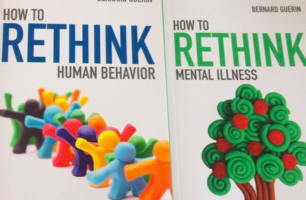In this interview with Bernard Guerin, author of How to Rethink Psychology, How to Rethink Human Behavior, and How to Rethink Mental Illness, Guerin discusses his conceptualization of mental health issues as normal reactions to a harmful environment, and examines the implications of this model for the role of mental health professionals and psychotherapists.
“The days of the generalist psychologists, psychiatrists and other ‘mental health’ professionals might actually be over. They will morph into specialists dealing with common bad environments or contexts which lead to conflictual and ‘locked in’ dysfunctional behaviours. They will have participatory experience in those environments, experience in analysing the complex social strategies involved, and work with the communities, not ‘on’ them.”















